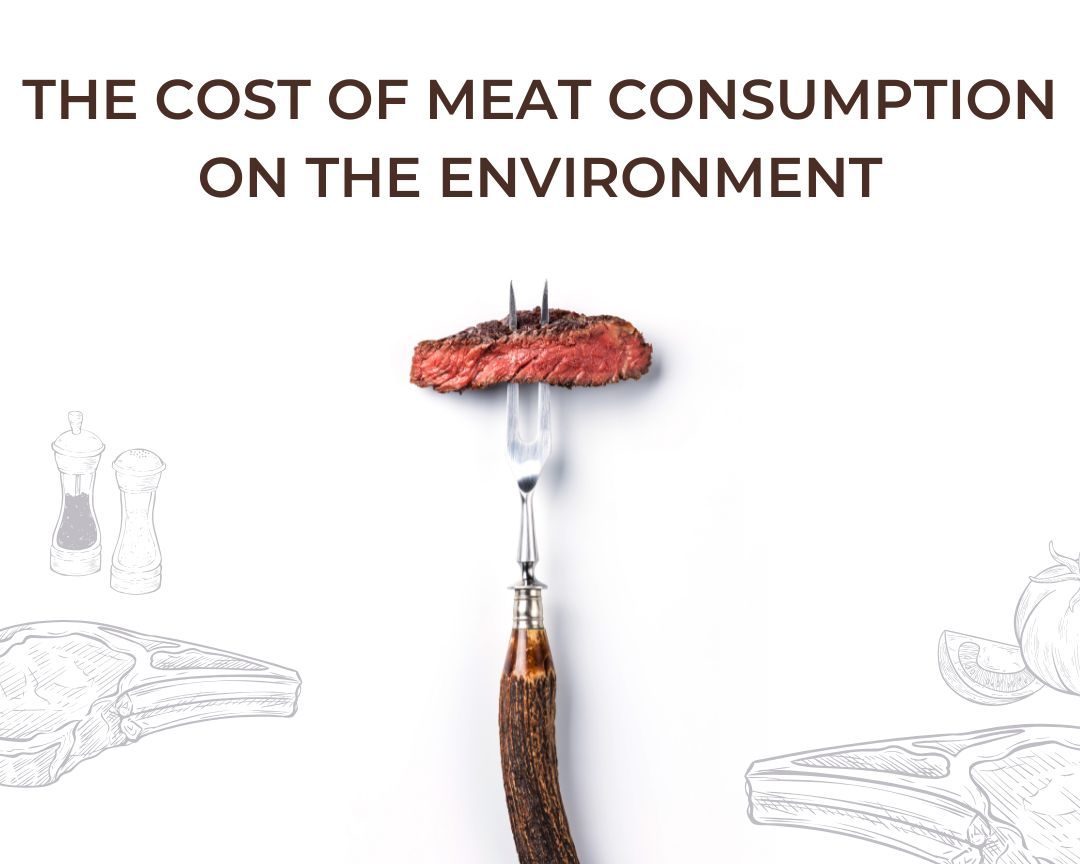Over 1,800 gallons of water are needed to produce one pound of beef. The production of meat uses resources such as land, water and energy to produce. This has harmful effects on the environment. With environmental issues growing day by day, it is essential to analyze food choices and how they impact the environment.
The greatest impact on the environment comes from raising cattle. This requires large amounts of water, land and feed for the cattle to grow. The biggest contributor to the carbon footprint is the production of beef because it releases large amounts of greenhouse gasses into the atmosphere.
Sophomore Gavin Russell was shocked by the carbon footprint of this industry. “I often eat beef and never even thought about all the resources that went into making it. I was very surprised when I learned of its impact on the environment. Although I don’t think I can rule out beef in my diet, this realization will make me eat less beef,” Russell said.
The diet that Russell is shifting to is called a flexitarian diet. Flexitarians are people who have a vegetarian diet with occasional meat consumption. This type of diet focuses on eating more whole and plant-based foods. This diet is more practical than going completely vegetarian or vegan because you can gradually add more plant-based foods to your diet.
Junior Harjeevan Singh recently began a flexitarian diet. “I’d always wanted to help the environment by reducing my meat consumption. Going fully vegetarian was too much pressure for me, but I felt that the flexitarian diet was much better because I was able to ease into it, and I can still enjoy meat from time to time,” Singh shared.
Many others across the nation are beginning to see environmental issues with their diets too. Recently an initiative titled “Meatless Monday” was created. This organization encourages a plant-based diet at least once a week. They also create unique vegetarian recipes to help gather more participants in their movement. Initiatives like these are key to building a more sustainable future for the environment to thrive in.
As environmental issues become more prevalent each year, it’s essential to examine lifestyles and see what each person can do to make a positive change — no matter how small it is. A simple tweak to diets can save lots of water and land. Going completely vegetarian is very difficult, but just reducing our meat consumption slightly will make a big difference.









